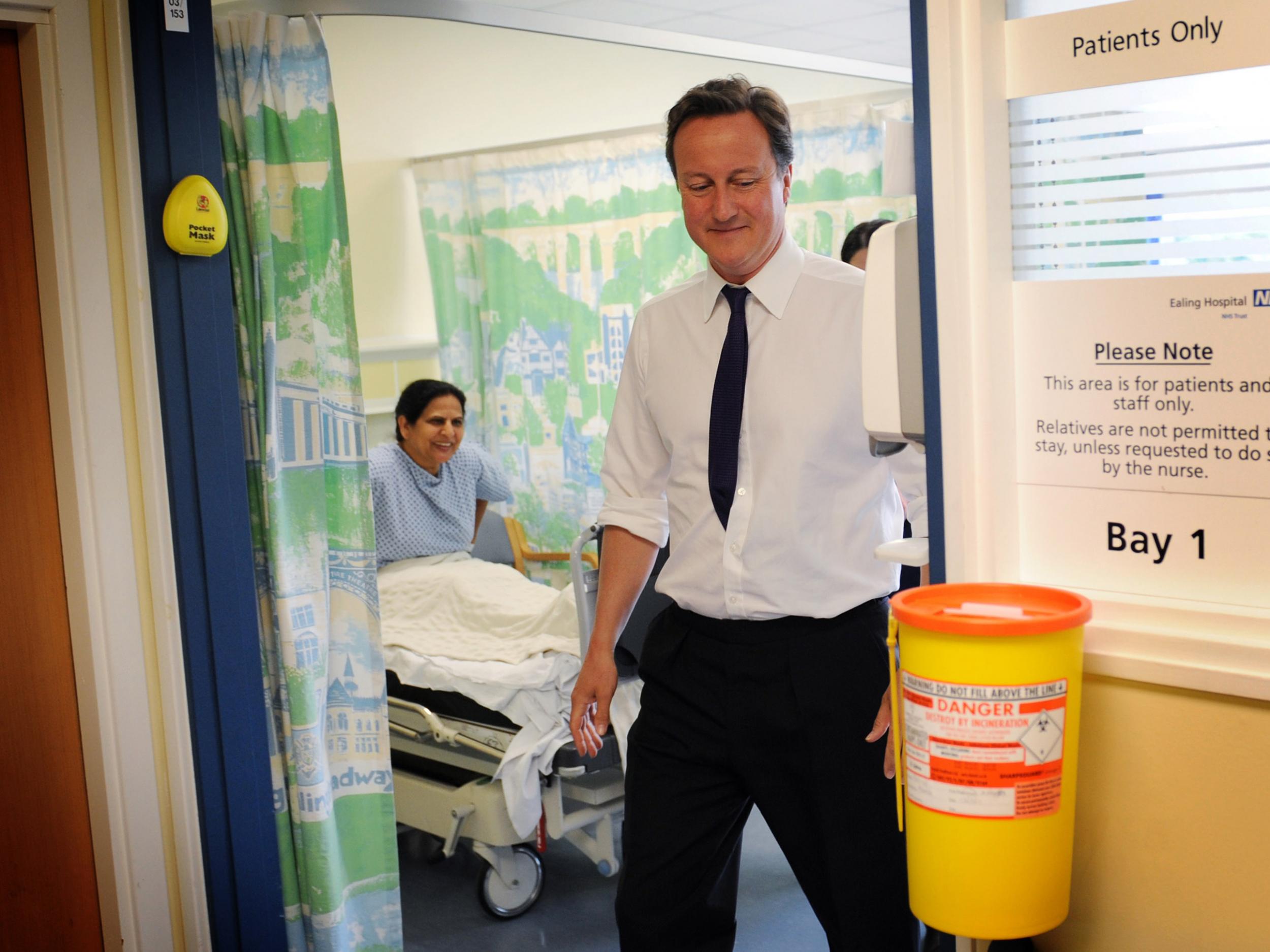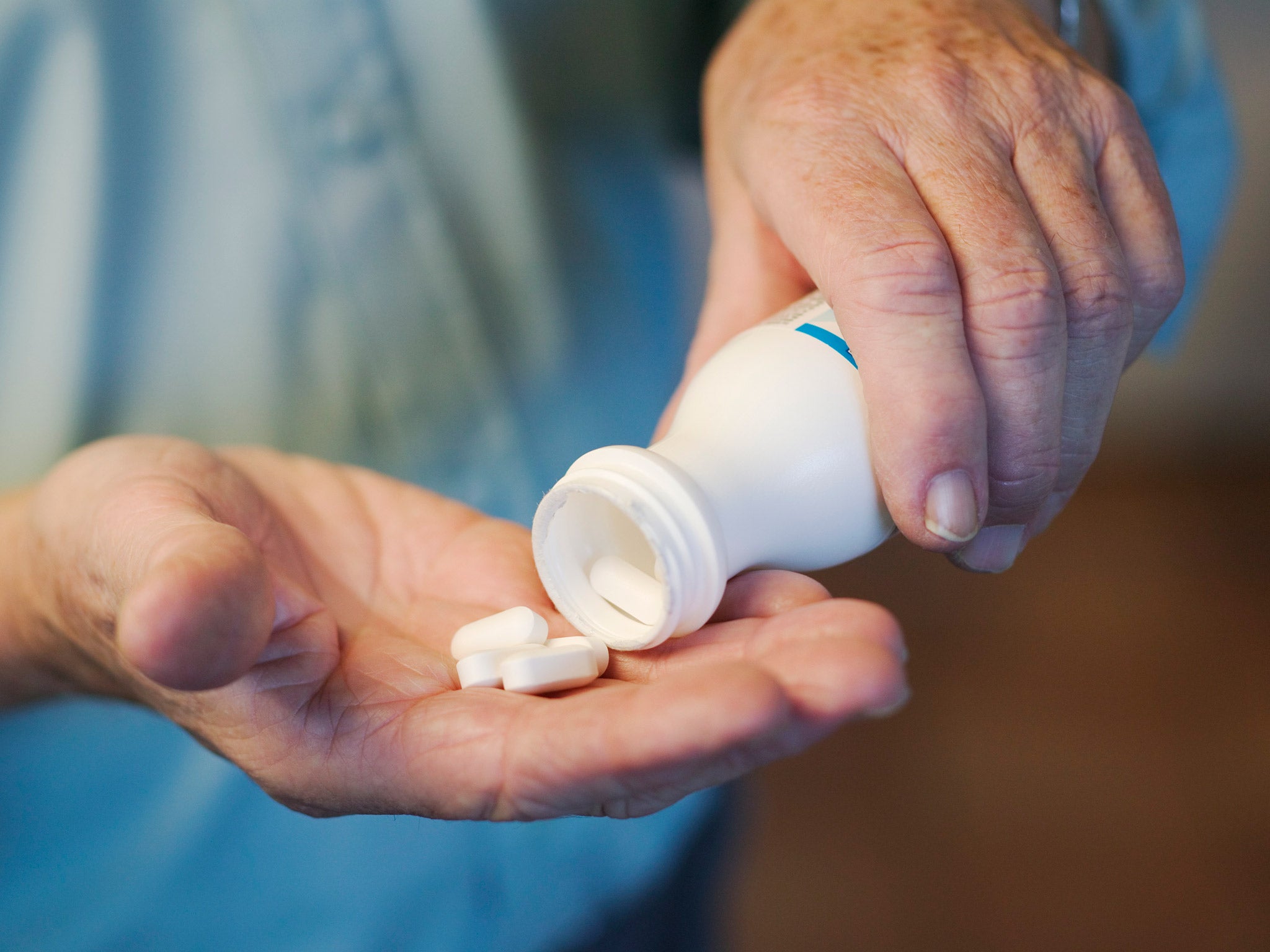Cancer Drugs Fund: £1.27bn initiative set up by David Cameron a ‘waste of money’, finds review
Over five years, £1.27bn could pay for 10,000 extra NHS nurses or an extra 20 GP surgeries

Your support helps us to tell the story
From reproductive rights to climate change to Big Tech, The Independent is on the ground when the story is developing. Whether it's investigating the financials of Elon Musk's pro-Trump PAC or producing our latest documentary, 'The A Word', which shines a light on the American women fighting for reproductive rights, we know how important it is to parse out the facts from the messaging.
At such a critical moment in US history, we need reporters on the ground. Your donation allows us to keep sending journalists to speak to both sides of the story.
The Independent is trusted by Americans across the entire political spectrum. And unlike many other quality news outlets, we choose not to lock Americans out of our reporting and analysis with paywalls. We believe quality journalism should be available to everyone, paid for by those who can afford it.
Your support makes all the difference.A fund of more than £1bn set up to increase access to cancer medicines was an expensive and ineffective political “sticking plaster” that left patients at risk of painful side-effects, a review has found.
Former Prime Minister David Cameron launched the Cancer Drugs Fund, a key policy in his 2010 election manifesto, to pay for cancer medicines not routinely available on the NHS.
Nearly 100,000 people received drugs through the scheme – but the majority of the available treatments failed to improve patients’ chances of survival in clinical trials, according to the study published in Annals of Oncology.
The fund ran until 2016 but has now been replaced by a fund more closely managed by the National Institute for Health and Care Excellence (Nice).
After examining the 47 different drugs available through the fund until January 2015, researchers concluded 62 per cent of them failed to show evidence of meaningful clinical benefit – while patients were left to suffer side-effects from hair loss to upset stomachs.
“The Cancer Drugs Fund cost the UK taxpayer a total of £1.27 billion, the equivalent of one year's total spend on all cancer drugs in the NHS,” said Ajay Aggarwal, a cancer expert at the London School of Hygiene and Tropical Medicine, who led the study.
“The majority of cancer medicines funded through the CDF were found wanting with respect to what patients, clinicians and Nice would count as clinically meaningful benefit.”

Over five years, £1.27bn could pay for 10,000 extra NHS nurses or an extra 20 GP surgeries, according to the BBC.
A 2015 assessment of the value of the drugs available on the fund led to a removal of 24 drugs, just over half of those available.
But evidence that 18 of these drugs were ineffective was available before the launch of the fund, said Dr Aggarwal.
This suggests “wastage of resources but equally that drugs were given that were ineffective and probably resulted in unnecessary toxicities for patients,” he said.
An editorial published in the Financial Times in 2014 called the Cancer Drugs Fund a “response to lobbying by cancer patient groups and the pharmaceutical industry”.
Not scrapping the fund was “a populist gesture that gives the impression of benefiting patients, but in fact rewards poor quality drugs while benefiting a handful of pharmaceutical companies at the expense of the taxpayer and the full range of NHS patients,” it said.
The researchers argued that the drugs’ benefit to patients in the “real world”, as opposed to clinical trials, was probably even less, given that people in clinical trials are carefully selected, have fewer other health problems and tend to be younger.
There was also no useable data collected on what happened to people taking the drugs via the fund – such as measuring how long they lived, their quality of life and side-effects, they said.
Professor Paul Workman, chief executive of the Institute of Cancer Research, said: “The old Cancer Drugs Fund was always just a sticking plaster and we welcomed its overhaul because it was too expensive, unsustainable and provided little certainty to patients and their doctors.
“The new, more evidence-based system, where Nice appraises all cancer drugs, should address some of the issues highlighted in this study.”
But Dr Paul Catchpole, from the Association of the British Pharmaceutical Industry (ABPI), which represents the pharmaceutical industry, warned that “sensationalist and misleading headlines do nothing to help ease the misery faced by cancer patients.
“The authors acknowledge that no real-world comprehensive outcomes data has been collected or published by the NHS on cancer drugs fund medicines to substantiate the claims.
“It is interesting to note that a majority of the medicines which were funded by the cancer drugs fund are now going on to be approved by Nice for routine use on the NHS. Undergoing this process has reaffirmed the clinical benefit of these medicines for cancer patients.”
Emlyn Samuel, Cancer Research UK's senior policy manager, said the charity hoped that a new data collection on outcomes for patients would “help give patients better access to innovative cancer drugs”.
A Conservative spokesman said: “The Cancer Drugs Fund is a policy that has given more than 100,000 people access to the latest drugs, meaning the chance of precious extra time with their families.”
Additional reporting from Press Association
Join our commenting forum
Join thought-provoking conversations, follow other Independent readers and see their replies
Comments